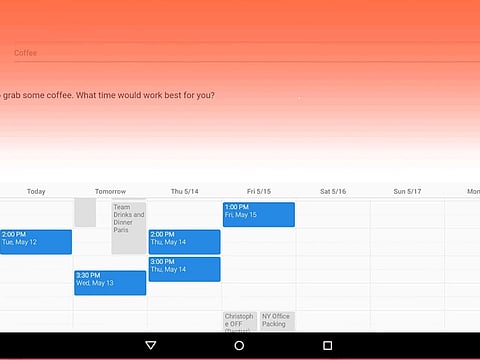Put those 168 hours to even better use
But limits are starting to appear in what human productivity can achieve

By Tommy Weir, Special to Gulf News
The number 168 was written on the chalkboard when we walked into class. Even before I had settled into my usual chair, my curiosity was piqued.
Thankfully, I didn’t have to wait long to find out what the three digits meant. Once everyone was seated, Dr. Patterson, one of my professors in grad school, posed the question that was on my mind: “Does anyone know what 168 stands for?”
After many guesses — some eager, others nervous, and a few purely ludicrous — he revealed the answer. “That’s how many hours you have in a week,” he announced. Each week is a 168-hour block, he explained.
It’s never longer and never shorter. Then he asked another question that has riveted in my head ever since: “How do you use your 168 hours?”
Put them to use
Even now, Mr Patterson’s class feels like yesterday, and his words still live with me. Perhaps that’s why I am conscious of how I spend my time, why I am obsessed with productivity, and why I want to help others to boost theirs.
So, let me put the same question to you. How do you use your time? How many hours do you sleep? Eat? Commute to work? How do you spend the rest of your hours? Do you waste them or make them productive?
As you think about the 168 hours in a week, your focus shouldn’t be restricted to time management. That is, the process of organising and planning how to divide your time between specific activities. Instead, you should focus on how you can use the hours you have to make a difference, to be productive. Here, what matters is outcomes per hour.
Productivity is the path to prosperity. Sadly, however, we are living in an era when productivity has flattened out and is constraining the potential of economies to achieve strong and sustained growth. Similarly, if your own productivity is sluggish, then it’s also your constraint.
Productivity dip
Individually, you’re able to control how you spend your hours, but as a leader — whether of a business or government — you should be obsessed with how you can maximise the hours your people work and how you can drive productivity growth. As harsh as it sounds, you’ve made a contract with your employees to trade time for money, and you need to make sure that contract is fulfilled in the best way possible.
Buying more time isn’t the solution. Look at the macroeconomic level for an indictment of what happens when productivity isn’t in the crosshairs. In the US the rate of productivity growth is down around 1 per cent from a record high of nearly 10 per cent in 1950. In Dubai, it actually takes more people to do less than it did 10 years ago.
Not only did the growth rate flatten, it declined,
Call in AI
So, how do you optimise the hours at your disposal? How do you turn sluggish productivity into gain? Well, rather than hiring more people so your organisation can do more, why not increase and enhance your current work with artificial intelligence — or augmented intelligence to be precise?
Augmented intelligence focuses on AI’s assistive role, emphasising the fact that cognitive technology is designed to enhance intelligence rather than replace it (AI replacing human workers is a different topic for another day).
The paradigm shift between humans and computers, and the way in which computers can assist people in their jobs is the answer to flat productivity. For example, the Trigger-Task-Time algorithm unearths what no manager could ever see.
It runs continually in the background, making clear how the time you pay for is spent and recommending actions that enable your managers and leaders to turn that time into productive hours.
You will never get time back, but artificial intelligence can have an incredible multiplier effect. So, make your time count for something by using AI that will enable you to do more in the precious hours you have.
Do you ever wish for more than 24 hours in a day? Well, AI can help to grant it.
Tommy Weir is CEO of enaible: AI-powered Leadership and author of “Leadership Dubai Style”. Contact him at tsw@tommyweir.com



